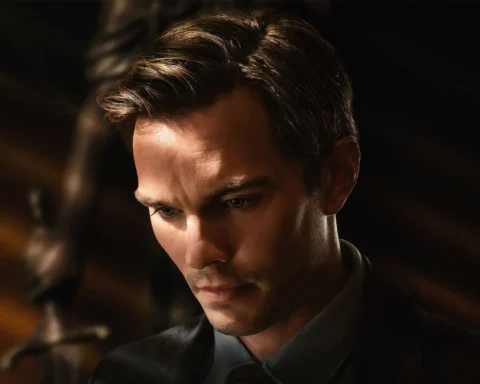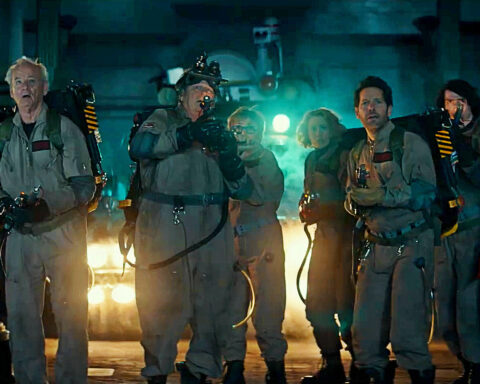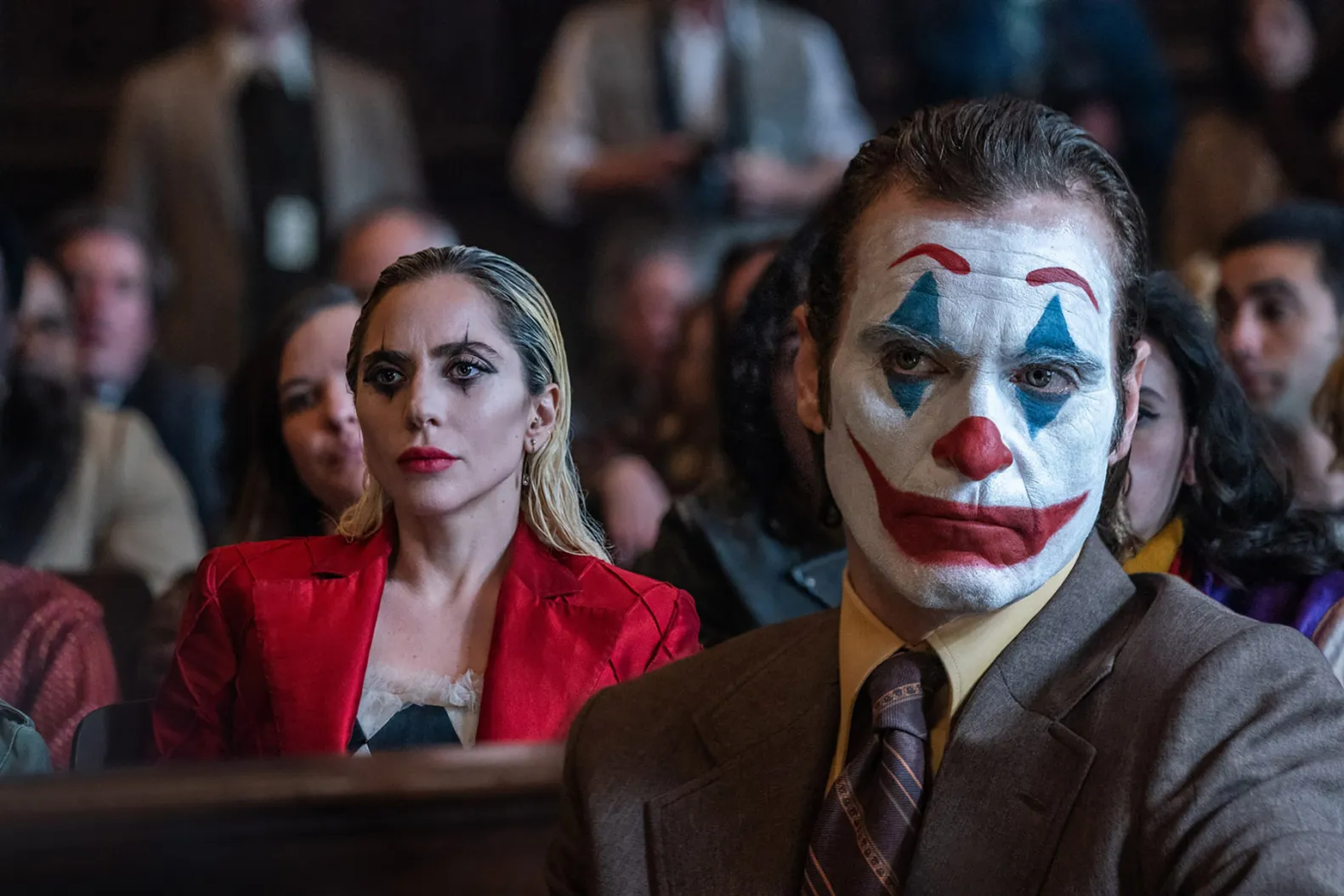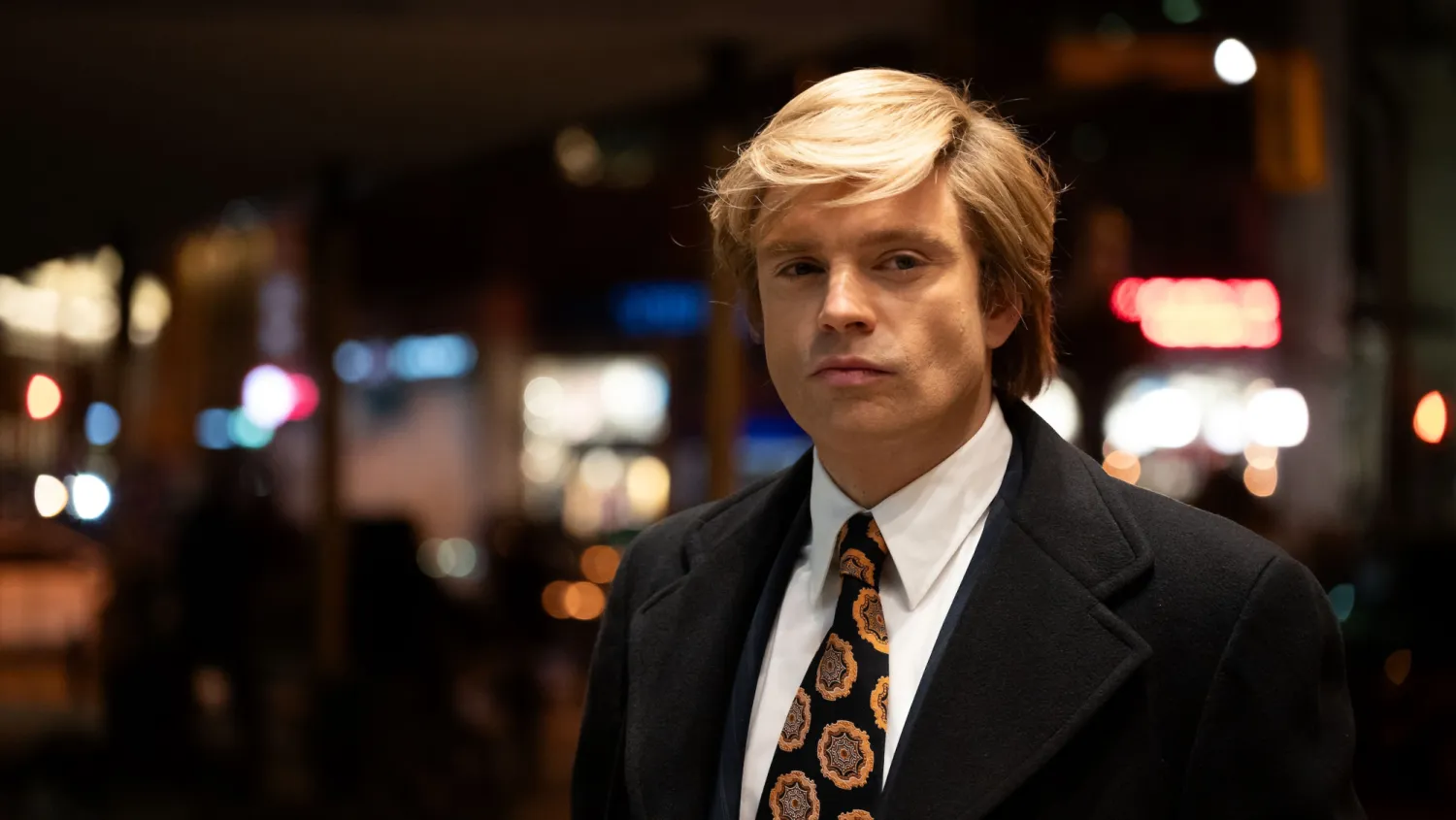Despite being born and spending much of my life on the other side of the Atlantic, I’ve always been a fan of Saturday Night Live. The live format, which not only allows for constant improvisation but also for countless memorable moments of actors breaking character, is immensely appealing, as is the show’s structure – a collection of distinct sketches with musical performances. So naturally, a film based on the pilot episode, specifically the 90 minutes leading up to the broadcast, caught my attention.
Saturday Night is the title of the movie and was also the name of the original show due to a conflict with another late-night program, Saturday Night Live with Howard Cosell. After that show was canceled, SNL adopted the title it’s known by today, becoming a cultural phenomenon that, despite having its greatest impact in its home country, still crossed borders and reached audiences everywhere. Naturally, a story about the origins of a show without a script or exact plan for how each segment would unfold needed to capture the humor, chaos, and magic of a TV revolution that almost didn’t happen.
Fortunately, filmmaker Jason Reitman (Ghostbusters: Afterlife) teamed up with his usual screenwriter, Gil Kenan, successfully bringing the essence of Saturday Night Live to the big screen. The film showcases the confused, tense behind-the-scenes yet full of positive energy, genuine humor, and palpable chemistry among the actors, even when they’re bickering. Above all, Saturday Night portrays the incredible sacrifices, tremendous courage, and collective effort required to overcome overwhelming doubt, constant panic, and last-minute challenges that nearly ended one of the most culturally impactful live TV shows in history.

Personally, I find Saturday Night excels technically, and I believe, to some extent, one of the primary goals of the narrative is precisely to highlight the work of all the elements and departments involved in a TV project like this. The cinematography by Eric Steelberg, the editing by Nathan Orloff and Shane Reid – all frequent collaborators of Reitman and Kenan – and Jon Batiste’s (Soul) score are crucial pillars that turn the chaos of backstage into a highly captivating, energetic, anxious, unpredictable movie, especially for viewers unfamiliar with the real story.
The camera work is fascinating, featuring long, uninterrupted takes that navigate through countless corridors, control rooms, and dressing rooms, all synchronized with set movements, actors, and other elements, clearly conveying that everyone present in the studio is responsible for some relevant task. The brisk, efficient editing creates a frenetic pace that lasts until the end, with little room to breathe, accompanied by exuberant music. The rising tension in Saturday Night is so powerful that I found it hard to stop my leg from shaking.
The cast is, as expected, vast and diverse, but even so, there are standout performances worth mentioning. In the comedy category, Dylan O’Brien (The Maze Runner), Matt Wood (Sunset Park), Tommy Dewey (Your Monster), Cory Michael Smith (May December), and Andrew Barth Feldman (No Hard Feelings) share dozens of truly hilarious moments, displaying impeccable comedic timing, physicality, and expressiveness. Kim Matula (The Bold and the Beautiful) also deserves a shoutout for a scene that brought tears of laughter to my eyes.
On the more dramatic side, the supposed protagonists also effectively propel the story forward, almost in real-time, moving from scene to scene. Gabriel LaBelle (The Fabelmans) and Rachel Sennott (Shiva Baby) don’t get many opportunities to develop their characters beyond the surface, a minor flaw of Saturday Night, which undoubtedly chooses to focus solely on recounting the insane story of how the show’s first night unfolded and the sketches that defined it. That said, every actor gets their moment in the spotlight, including J.K. Simmons (Whiplash) as Milton Berle in an unforgettable opening dance sequence for his own program.
Saturday Night successfully captures the frenetic energy and spontaneous magic of the behind-the-scenes world of SNL, transporting us to the heart of the organized chaos of a live broadcast. Through engaging camera work and fast-paced editing, Jason Reitman and his team recreate the palpable nervousness and unique humor that shaped an iconic show. It’s a celebration of the talents who came together to create one of the most enduring, influential phenomena in television history. An irresistible tribute to all who dared to dream big, even when success seemed unlikely.






